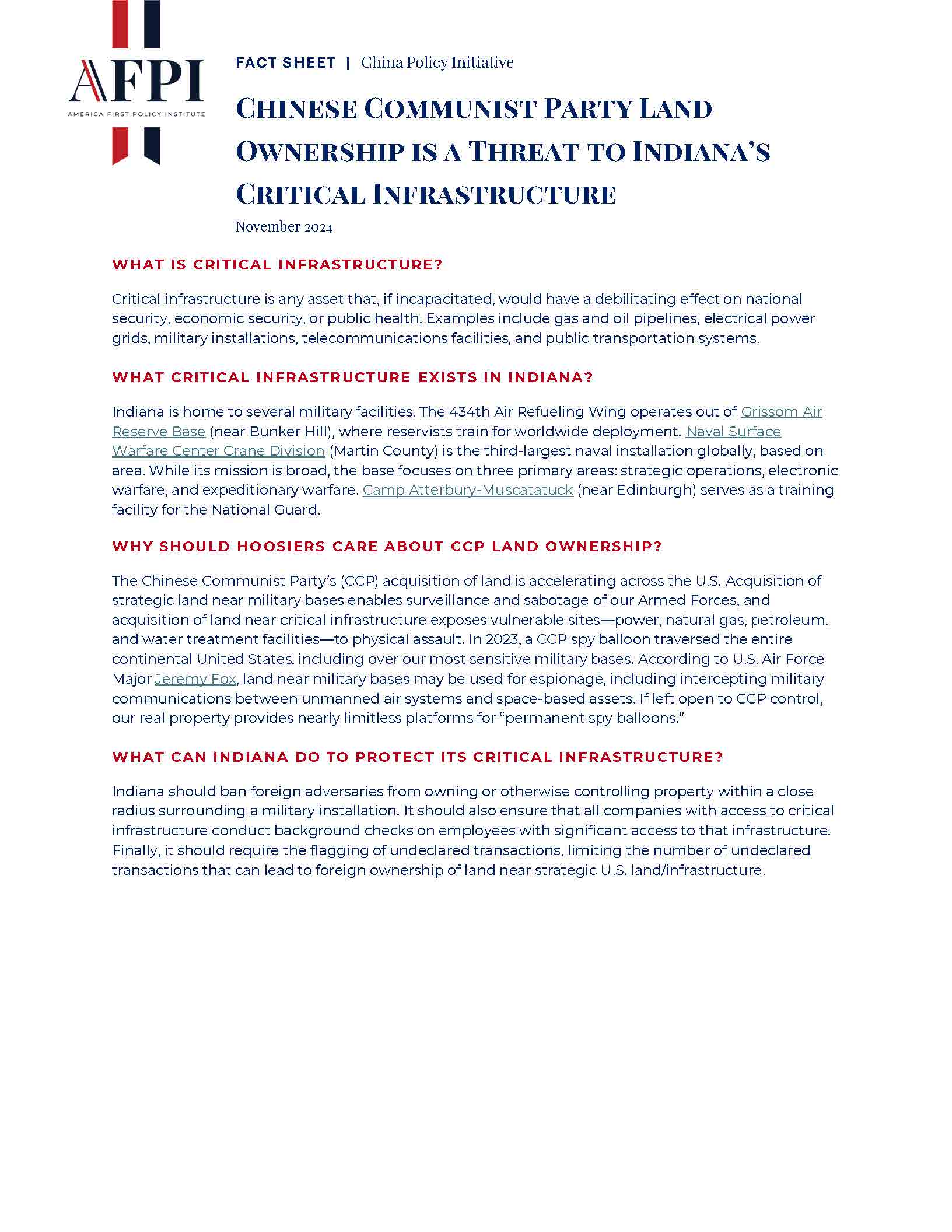America First Policy Institute
Chinese Communist Party Land Ownership is a Threat to Indiana’s Critical Infrastructure
WHAT IS CRITICAL INFRASTRUCTURE?
Critical infrastructure is any asset that, if incapacitated, would have a debilitating effect on national security, economic security, or public health. Examples include gas and oil pipelines, electrical power grids, military installations, telecommunications facilities, and public transportation systems.
WHAT CRITICAL INFRASTRUCTURE EXISTS IN Indiana?
Indiana is home to several military facilities. The 434th Air Refueling Wing operates out of Grissom Air Reserve Base (near Bunker Hill), where reservists train for worldwide deployment. Naval Surface Warfare Center Crane Division (Martin County) is the third-largest naval installation globally, based on area. While its mission is broad, the base focuses on three primary areas: strategic operations, electronic warfare, and expeditionary warfare. Camp Atterbury-Muscatatuck (near Edinburgh) serves as a training facility for the National Guard.
WHY SHOULD HOOSIERS CARE ABOUT CCP LAND OWNERSHIP?
The Chinese Communist Party’s (CCP) acquisition of land is accelerating across the U.S. Acquisition of strategic land near military bases enables surveillance and sabotage of our Armed Forces, and acquisition of land near critical infrastructure exposes vulnerable sites—power, natural gas, petroleum, and water treatment facilities—to physical assault. In 2023, a CCP spy balloon traversed the entire continental United States, including over our most sensitive military bases. According to U.S. Air Force Major Jeremy Fox, land near military bases may be used for espionage, including intercepting military communications between unmanned air systems and space-based assets. If left open to CCP control, our real property provides nearly limitless platforms for “permanent spy balloons.”
WHAT CAN INDIANA DO TO PROTECT ITS CRITICAL INFRASTRUCTURE?
Indiana should ban foreign adversaries from owning or otherwise controlling property within a close radius surrounding a military installation. It should also ensure that all companies with access to critical infrastructure conduct background checks on employees with significant access to that infrastructure. Finally, it should require the flagging of undeclared transactions, limiting the number of undeclared transactions that can lead to foreign ownership of land near strategic U.S. land/infrastructure.
